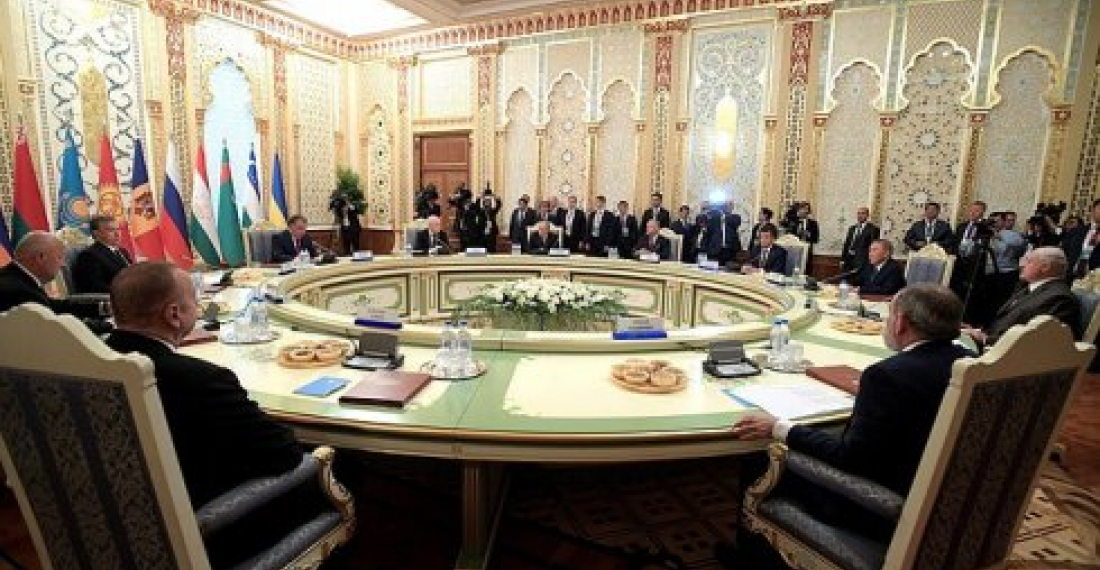A summit of the Heads of State and Government of the Commonwealth of Independent States has opened in the capital of Tadjikistan, Dushambe.
Russian president Vladimir Putin has joined a number of leaders from post Soviet states attending the meeting, including Azerbaijani president Ilham Aliyev and Armenian prime minister Nikol Pashinyan.The summit is expected to assess the results of cooperation within the CIS in the current year and discuss key areas for further development of the Commonwealth, according to the Kremlin website. "Particular attention is expected to be given to preparations for the joint celebration in 2020 of the 75th anniversary of the Victory in the Great Patriotic War", it added.
A number of multilateral documents on deepening cooperation in the humanitarian, law enforcement and military spheres are expected to be signed. Critics of the CIS say that hundreds of documents have been signed since the organisation was created after the collapse of the Soviet Union in 1991, but few have been implemented.
Georgia left the CIS shortly after the 2008 Georgia-Russia War. Ukraine remains formally a member of the organisation, but is represented at the summit with an Ambassador.
source: commonspace.eu
photo: The opening of the Summit of the Heads of State and Government of the Commonwealth of Independent States took place in Dushambe on 28 September 2018 (picture courtesy of the press service of the president of the Russian Federation).






